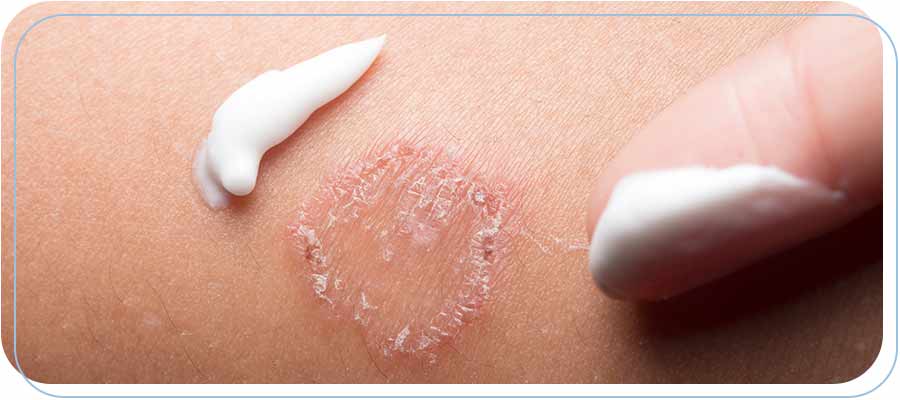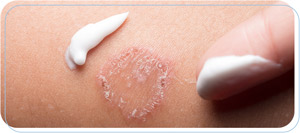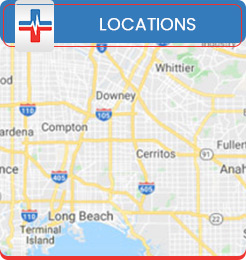How to Get Rid of Ringworm?
To get rid of ringworm, keep the area clean and dry, use over-the-counter antifungal medicines, and avoid sharing personal things. If you have ringworm and are looking for treatment, contact Reddy Urgent Care. Our healthcare professionals offer effective treatments as well as prevention and management guidance. For more information, contact us. We have convenient locations to serve you.


Table of Contents:
What kills ringworm quickly?
What are the symptoms of ringworm?
Can ringworm go away naturally?
How long is ringworm contagious?
To kill ringworm quickly, it’s recommended to use antifungal medications. Topical antifungal creams and ointments are the first line of treatment for ringworm on the skin. These medications work by directly targeting the fungus and inhibiting its growth. It’s important to follow the instructions provided by your healthcare professional regarding proper application and duration of use.
In addition to topical treatments, oral antifungal medications can be prescribed for more severe or persistent ringworm cases. These medications work from within the body to eliminate the infection. It’s crucial to complete the full course of treatment as prescribed, even if the symptoms improve before the medication is finished.
Alongside medication, practicing good hygiene is key to preventing the spread of ringworm. Keep the affected areas clean and dry, avoid sharing personal items like towels or clothing, and wash your hands thoroughly after touching the affected area. If you suspect you have ringworm, it’s recommended to seek medical advice from a healthcare professional for an accurate diagnosis and appropriate treatment.
Ringworm, a prevalent fungal infection, can impact different areas of the body such as the skin, scalp, and nails. The symptoms experienced from ringworm will vary depending on the specific location of the infection. On the skin, ringworm typically appears as a red, circular rash with raised edges. The rash may be itchy, scaly, and often has a clear center. It can be a single patch or several patches that may spread over time. In some cases, blisters or pus-filled sores can develop.
When ringworm affects the scalp, it can cause patches of hair loss, scaly or crusty patches, and itching. The affected areas may also be red and inflamed. Ringworm of the nails, also known as onychomycosis, can cause thickening, discoloration, and brittleness of the nails. The nails may become crumbly or distorted in shape. It’s important to note that the symptoms of ringworm can resemble other skin conditions, so it’s wise to consult a healthcare professional for an evaluation and effective treatment.
Ringworm is a fungal infection that requires treatment to clear up completely. Ringworm does not improve on its own over time, so it is not recommended to rely solely on natural remedies or expect the infection to go away without treatment.
Without proper treatment, ringworm persists and typically spreads to other areas of the body and to other people. Seeking medical attention is crucial for ensuring you receive an accurate diagnosis and a comprehensive treatment plan. A member of our healthcare team can provide you with personalized guidance on the most suitable course of action based on your needs.
It’s also crucial to take measures to prevent the spread of ringworm. This includes practicing proper hygiene, avoiding close contact with infected people or animals, keeping the affected areas clean and dry, and not sharing personal items. Remember, early detection and treatment will speed up the healing process and prevent further complications.
Ringworm is contagious and spreads from person to person and from animals to people. The exact duration of contagiousness varies, but generally, ringworm remains contagious as long as the patches are present on the skin.
During this time, direct contact with the affected areas or contact with contaminated items such as clothing, towels, bedding, or sports equipment can spread the infection. It’s also important to note that ringworm can still be contagious even if the affected area is not visible.
With appropriate treatment, ringworm typically becomes less contagious within 48 hours. However, it is still essential to continue treatment until the infection is completely cleared. It’s advisable to avoid close contact with others, especially children, during this period to prevent transmission. If you suspect you have ringworm or have been in close contact with someone who has it, it’s best to seek medical attention for an accurate diagnosis and prompt treatment.
For effective treatment options and care for ringworm, visit us at Reddy Urgent Care. For more information, contact us. We have convenient locations to serve you. Reddy Urgent Care and Walk-In Clinic in Downtown and Bixby Knolls Long Beach, CA serves the surrounding areas of Belmont Shore, Shoreline Village, The Pike Outlets, Downtown Long Beach Station, The Westin Long Beach, Signal Hill, Long Beach Boulevard, California.
Check Out Our 5 Star Reviews






